The Catalyst Killing - [8]
Trond Ibsen laughed charmingly at his own little joke. But I had seen a glimpse of the harder and more fanatical man hidden behind this jovial facade. In addition, I had a strong suspicion that he was holding something back from me. Twice he seemed to be about to add something, and twice he refrained from doing so.
I thanked him for the information he had given me. Without being asked, he said that he would of course be happy to answer any more questions, either at his home in Bestum or his office in Majorstua.
My curiosity regarding Miriam Filtvedt Bentsen had been piqued – the girl who had stood up and left, and who apparently read books as she crossed the street. I had in the meantime concluded that I should speak to all the members of the group as soon as possible, and Kristine Larsen was the one who lived closest.
VII
I stopped at a phone box on the corner and dialled the number I had been given for Kristine Larsen. She picked up the telephone on the third ring, without much enthusiasm, as far as I could tell. But she was clearly at home and immediately said that she had heard that Marie Morgenstierne was dead. When I said that I was in the neighbourhood and asked if I could come by, she said yes, with a quiet sigh.
Kristine Larsen lived on her own in a one-bedroom flat on the second floor. She came from a small family and had inherited the flat recently from her late grandmother, she added by way of explanation for the rather untidy living room. We sat down instead at a tidier kitchen table, where two coffee cups stood waiting.
Kristine Larsen was around five foot ten, blonde, slim and rather attractive and friendly. She was, however, obviously affected by the situation. She repeated twice that she would of course answer me as best she could, but that she was not used to being questioned by the police, and it had been a shock to learn that Marie Morgenstierne had been killed. Both Trond Ibsen and Anders Pettersen had called her, but she had already heard the news about a young woman who had been found dead at Smestad on the radio and immediately known who it was. As a result, she had remained at home instead of going to her lectures.
I assured her that we had all the time in the world, and she calmed down a bit. I quickly got the impression that behind her cautious manner was a rather strong-willed woman. She also appeared to have a good memory, and to be a reliable witness.
As far as Falko Reinhardt’s disappearance was concerned, Kristine Larsen said that it was still a complete mystery to her. She had been staying in the next room with Miriam Filtvedt Bentsen, but had been kept awake by a headache that night. She had left the door out to the hallway ajar because she needed air. She recognized all the others’ footsteps and could hear any movement outside her room after she had gone to bed. She had heard Marie Morgenstierne going to the kitchen to get a glass of water, Anders Pettersen going to the toilet and Trond Ibsen going out to get some fresh air for a few minutes. Her roommate Miriam Filtvedt Bentsen had read in bed from ten until midnight, and then gone to sleep. Falko Reinhardt had apparently stayed in his room after he retired just before midnight, and there was no sign of life from him until Marie Morgenstierne raised the alarm that he had disappeared around two in the morning.
As for Marie Morgenstierne, Kristine Larsen had known her since high school. Marie Morgenstierne had met Falko Reinhardt shortly after she started university, and despite their very different social backgrounds, they immediately hit it off. They did seem to fall in love with an unusual passion, Kristine Larsen remarked with a careful little smile. Marie’s parents seemed to think that it was Falko who had led their daughter astray politically. She had, however, been moving rapidly towards socialism for about a year already before she met him, and they had in fact met at a meeting for radical students. Marie’s political views were her own, as far as Kristine Larsen could tell, but she had been very influenced by her boyfriend up until the time he disappeared. He was also a very dominant figure in the group. However, even though she remained in his shadow, Marie Morgenstierne had a far stronger personality than one might first assume, given her gentle nature.
It was a great tragedy that Marie Morgenstierne’s mother had died in the middle of this dramatic period. Marie said that she could not bear to go to her mother’s funeral and had, as far as Kristine knew, had very little contact with her father since. Kristine Larsen had been to Marie Morgenstierne’s childhood home many times when they were teenagers and had met her parents. They were nice and kind in their own way, but ‘terribly reactionary capitalists’, and her father in particular appeared to be very strict. Kristine Larsen had known Marie longer and better than she had Falko and as far as she knew, she had never met his parents.
I had noted that possible motives for the murder might be a new lover, or the rejection of a suitor. I took the opportunity to ask Kristine Larsen if she thought that there was perhaps a new man in Marie Morgenstierne’s life.
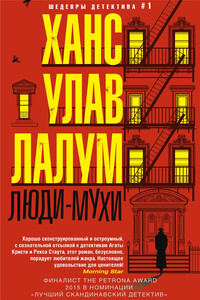
Убит бывший лидер норвежского Сопротивления и бывший член кабинета министров Харальд Олесен. Его тело обнаружено в запертой квартире, следов взлома нет, орудие убийства отсутствует. На звук выстрела к двери Олесена сбежались все соседи, но никого не увидели. Инспектор уголовного розыска Колбьёрн Кристиансен считает, что убийство, скорее всего, совершил кто-то из них. Более того, он полагает, что их показания лживы.
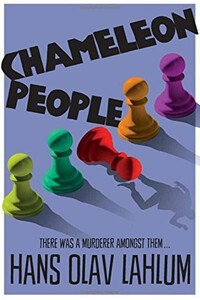
From the international bestselling author, Hans Olav Lahlum, comes Chameleon People, the fourth murder mystery in the K2 and Patricia series.1972. On a cold March morning the weekend peace is broken when a frantic young cyclist rings on Inspector Kolbjorn 'K2' Kristiansen's doorbell, desperate to speak to the detective.Compelled to help, K2 lets the boy inside, only to discover that he is being pursued by K2's colleagues in the Oslo police. A bloody knife is quickly found in the young man's pocket: a knife that matches the stab wounds of a politician murdered just a few streets away.The evidence seems clear-cut, and the arrest couldn't be easier.
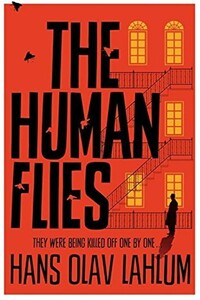
Oslo, 1968: ambitious young detective Inspector Kolbjorn Kristiansen is called to an apartment block, where a man has been found murdered. The victim, Harald Olesen, was a legendary hero of the Resistance during the Nazi occupation, and at first it is difficult to imagine who could have wanted him dead. But as Detective Inspector Kolbjorn Kristiansen (known as K2) begins to investigate, it seems clear that the murderer could only be one of Olesen's fellow tenants in the building. Soon, with the help of Patricia – a brilliant young woman confined to a wheelchair following a terrible accident – K2 will begin to untangle the web of lies surrounding Olesen's neighbors; each of whom, it seems, had their own reasons for wanting Olesen dead.
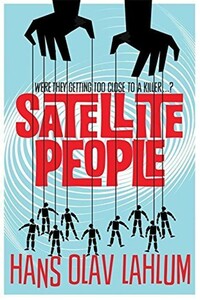
A gripping, evocative, and ingenious mystery which pays homage to Agatha Christie, Satellite People is the second Norwegian mystery in Hans Olav Lahlum's series. Oslo, 1969: When a wealthy man collapses and dies during a dinner party, Norwegian Police Inspector Kolbjorn Kristiansen, known as K2, is left shaken. For the victim, Magdalon Schelderup, a multimillionaire businessman and former resistance fighter, had contacted him only the day before, fearing for his life. It soon becomes clear that every one of Schelderup's 10 dinner guests is a suspect in the case.

В СВР поступает информация о том, что бывший министр атомной энергетики в России Алексей Медведев, отправившийся на отдых в Бразилию, ведет переговоры со спецслужбами США о продаже секретных сведений. Руководство СВР уверено, что это ошибка, но проверка необходима и в Рио-де-Жанейро вместе с двумя агентами отправляется Егор Кремнев. Он даже не подозревает, что это несложное задание будет стоить ему свободы и только случайная встреча поможет выжить.Егор Кремнев даже представить не мог, что несложное задание в солнечном Рио-де-Жанейро по проверке министра атомной энергетики, который ведет двойную игру, обернется чудовищными неприятностями.

В книге рассказывается история главного героя, который сталкивается с различными проблемами и препятствиями на протяжении всего своего путешествия. По пути он встречает множество второстепенных персонажей, которые играют важные роли в истории. Благодаря опыту главного героя книга исследует такие темы, как любовь, потеря, надежда и стойкость. По мере того, как главный герой преодолевает свои трудности, он усваивает ценные уроки жизни и растет как личность.
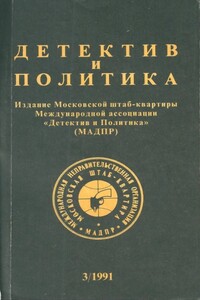
В книге рассказывается история главного героя, который сталкивается с различными проблемами и препятствиями на протяжении всего своего путешествия. По пути он встречает множество второстепенных персонажей, которые играют важные роли в истории. Благодаря опыту главного героя книга исследует такие темы, как любовь, потеря, надежда и стойкость. По мере того, как главный герой преодолевает свои трудности, он усваивает ценные уроки жизни и растет как личность.
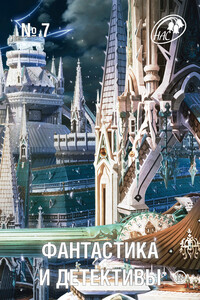
В номере:Вадим Громов. Уснувшие небесаОлег Кожин. Самый лучший в мире диванПетр Любестовский. Жажда смертиИван Зерцалов. Дело о пришибленном докторе.

Для детективного агентства «Глория» наступили черные времена. Важный московский чиновник, которого охраняли сотрудники Дениса Грязнова, был застрелен наемным убийцей. Все СМИ, которые сообщали об этом громком деле, нелестно отзывались о «Глории». Число клиентов резко сократилось… Для того чтобы найти выход из этой сложной ситуации, Денису Грязнову приходится много потрудиться. Распутать хитросплетение заговоров вокруг акул бизнеса, общаться со столичными бомжами, преследовать киллера по улицам ночной Москвы и даже оказаться в подземелье средневекового замка…
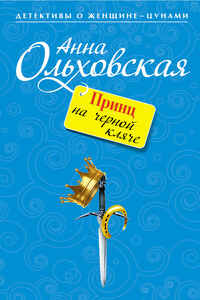
В прошлый раз только чудо спасло красотку Лану Красич от страшного жертвоприношения на алтаре в центре древнего лабиринта. И вот снова на Олешином острове происходит что-то неладное. Неужели опять всему виной языческий культ?.. Лана не желает верить во всю эту мистическую чушь, но друзей и ее саму продолжают преследовать жуткие злоключения. Возлюбленному Ланы Кириллу Витке внезапно становится плохо, и его срочно увозят на «Скорой» в неизвестном направлении, и потом никто не может найти больницу, куда его поместили.